Rights underpressure
Crises and conservatism are jeopardizing sexual and reproductive health and rights. Now is the time to restate not rip up their place in development, say Europe's progressive governments.
The year 2020 is a tense moment for sexual and reproductive health and rights.
The global crisis triggered by the COVID-19 pandemic threatens years of hard-won progress on gender equality and SRHR, and risks pushing them to the fringes of development agendas. Climate change, conflict, record numbers of displaced people, and the resurgence of ultra-conservative forces also pose a danger to SRHR, jeopardizing the wellbeing of billions of women and girls and society at large.
Long before COVID-19 struck, progressive governments in Europe were at the forefront of global action to support SRHR. Now, as crises worsen on multiple fronts, the fight is on to protect the budgets and breathing space needed if these plans are to survive, let alone thrive.

From high hopes
to crisis











Back in January, things looked far more hopeful. 2019 had ended on a high, with a string of political breakthroughs. At the United Nations in September, 58 countries had endorsed a statement on SRHR as a ‘cornerstone’ of universal health coverage – a move targeted at slashing the cost of services for billions of people.
Two months later, at the Nairobi Summit – co-hosted by the UN Population Fund, Kenya and Denmark – 55 countries united behind a common statement on gender equality and SRHR, with clear goals to support the 4.3 billion people lacking access to adequate sexual health services.
Opposition had been sharp-elbowed and sustained, but the mood was buoyant: the ink had dried on memorandums and a new dawn was breaking. It was now time for governments to make good on political and financial commitments.
Today, the world looks very different. The COVID-19 pandemic has turned 2020 into a year of tragedy and turmoil, with economic collapse and contraction following fast in the disease’s wake. In our intricately connected, globalised world, few are untouched by it: the pandemic has exacerbated health, social and economic inequalities on every continent, and continues apace.


SRHR under attack
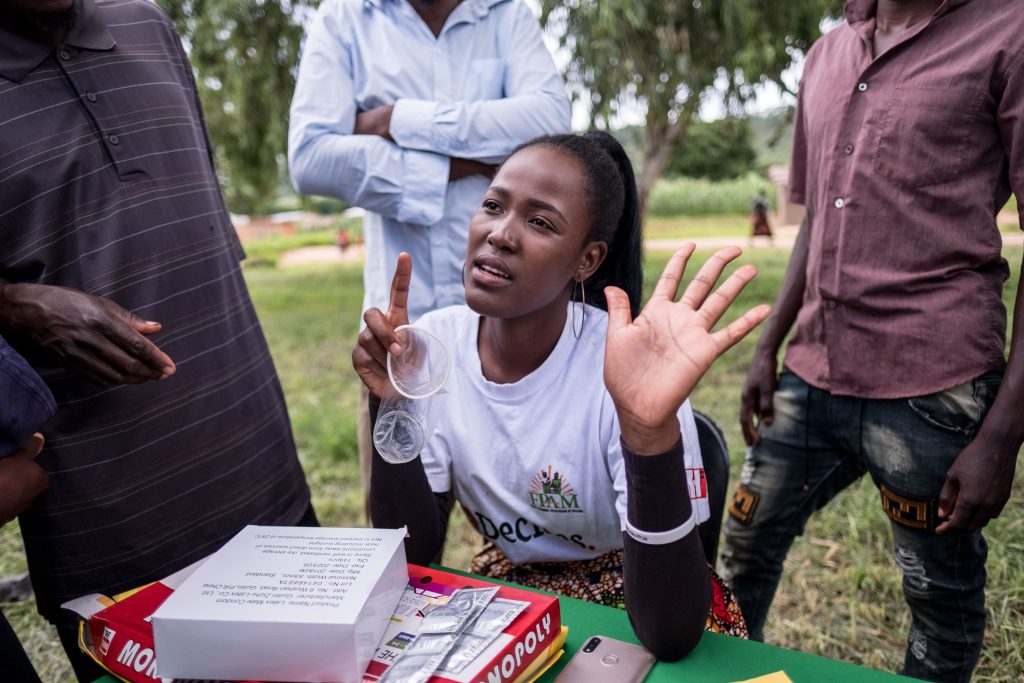

A disgraceful and dangerous attack on essential health services at the worst possible time
Akila Radhakrishnan, president of the Global Justice Centre
The damage that COVID-19 has inflicted on sexual and reproductive health and rights is multiple, searing and on course to accelerate.
Access to family planning and sexual health services – fraught for many at the best of times – is now far tougher, with the closure of clinics worldwide. In June, IPPF reported that 52 of its member organizations rated the cuts to their services as “critical or severe”, with stockouts of contraceptives, supply chain failures, staff lay-offs and clinics being closed.
Thousands of mobile clinics and community-based care outlets – the backbone of SRH services in many low-income countries – have been forced to shut up shop across Africa, Asia and Latin America.
Meanwhile conservative governments and lobbyists have been using the crisis as a pretext for tearing up gender equality policy, pushing SRHR to the fringes of public health or even eradicating it from policies altogether. Members of IPPF report that SRHR opponents have been spreading misinformation, reinforcing traditional values and pushing for regressive measures against SRHR, under cover of the pandemic.
In May, for example, the US administration sparked global outrage by demanding the removal of SRHR from the UN’s COVID-19 humanitarian response plan – a move described as “a disgraceful and dangerous attack on essential health services at the worst possible time,” by Akila Radhakrishnan, president of the Global Justice Centre.











Funding in freefall
Threats to SRHR aren’t always driven by malign instincts. Many people fear that the impact of falling tax revenues and recession on official development assistance (ODA) budgets will see SRHR sidelined, as governments scramble to make decisions over what to cut, what to save, and the shape of economic recovery.
Any slight dip in funding could be catastrophic for low-income countries, where a staggering 35.7 per cent of total health spending and close to 50 per cent of spending on contraceptive supplies comes from development assistance.
With COVID-19 refocusing minds and momentum on the value of functioning health systems, the danger is that arguments over what are deemed “essential services” will push SRHR back into the shadows and undermine efforts to cement its place in universal healthcare.
Researchers at the Guttmacher Institute estimate that even a modest 10 per cent decline in access to essential SRH services would push a further 49 million women into positions where they cannot access contraception, with an additional 15 million unintended pregnancies each year. Cuts to pregnancy-related and newborn healthcare, the researchers estimate, could lead to an additional 168,000 newborn deaths and 28,000 maternal deaths each year.
Bold new steps for SRHR
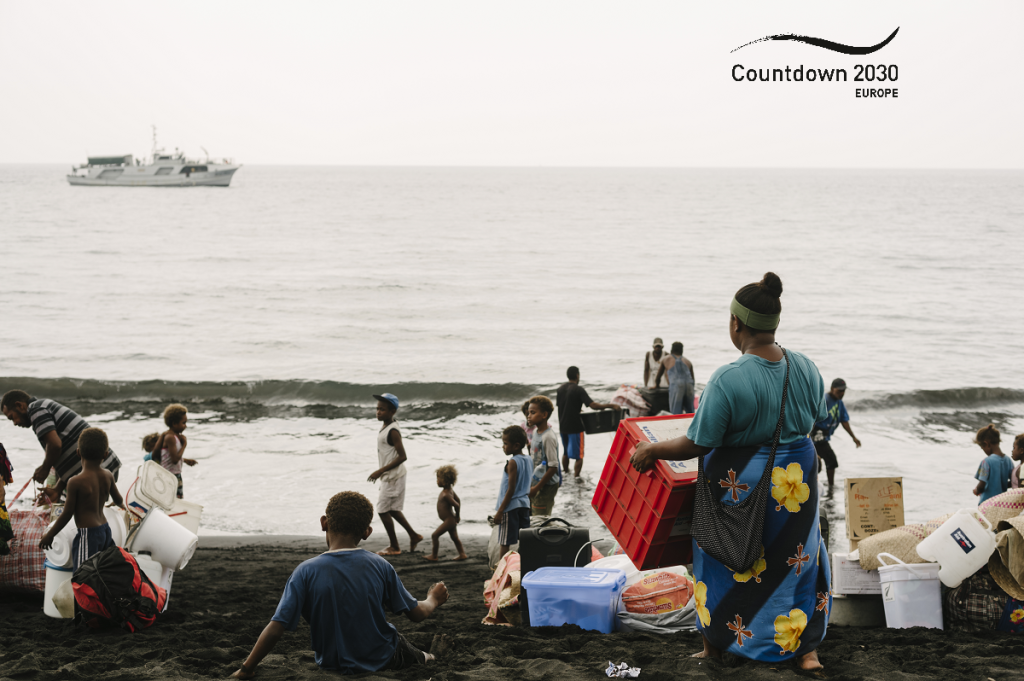

It is vital both to enshrine SRHR in pandemic response and to protect the extraordinary progress made in integrating gender equality and SRHR in development policy worldwide.
While the COVID-19 crisis has seen SRHR come under sustained attack from conservative forces, often accompanied by a political slide towards isolationism and the scapegoating of international organizations or political rivals, many other governments have rallied to support both SRHR and each other.
In May, 59 countries – 36 of them from Europe – issued a statement stressing the need to protect SRHR and promote gender responsiveness in efforts to tackle the pandemic.
Europe, like most continents, is home to a spectrum of government positions on SRHR, from the progressive to the ultra-conservative. The continent’s more liberal governments believe it is vital both to enshrine SRHR in pandemic response and to protect the extraordinary progress made in integrating gender equality and SRHR in development policy worldwide since the first International Conference on Population in 1994.
Many also call for taking bold new steps to protect the sexual and reproductive health and rights of billions of people – and working together across borders and sectors to do so.
Advocates for this include 12 European governments and the European Commission, which were interviewed recently about their SRHR visions, as part of a consultation by Countdown 2030 Europe, a consortium of European NGOs focused on human rights and the global unmet need for family planning.
These governments have spent years pushing for gender equality and SRHR at home and in the development programmes they support abroad. Their priorities and tactics vary but cutting across all is the belief that SRHR are part and parcel of human rights and gender equality – as laid out in international and European human rights declarations – and core to public health and development.
As the crises facing the world ratchet up pressure on global and national budgets, these governments are determined to protect this progressive vision for SRHR, as part of the push towards the 2030 Agenda for Sustainable Development, and beyond.
Beyond family planning











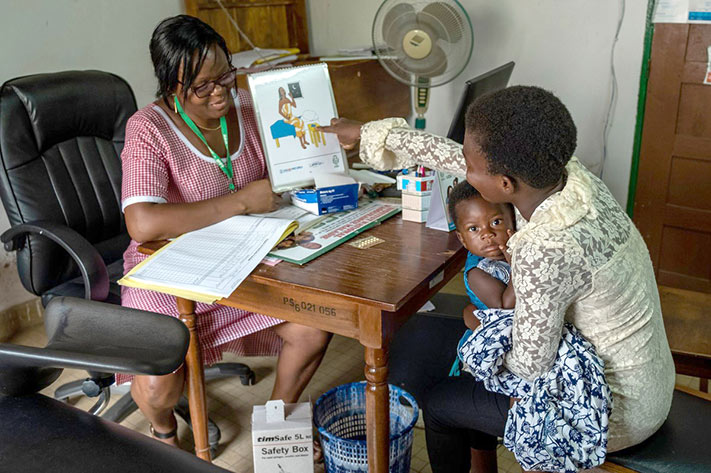

Many European governments across Europe put the promotion of universal access to contraception at the centre of their SRHR agendas, guided by the belief that ensuring people’s right to access contraceptive information and services is fundamental to achieving gender equality and human development.
For Europe’s more progressive governments, interviewed as part of Countdown 2030 Europe’s consultation, their vision for SRHR is about more than access to family planning and contraception. They endorse a bold, progressive vision that touches upon education, jobs, recreation and every aspect of being human – and, in many cases, is informed by the comprehensive definition of SRHR presented in the 2018 Guttmacher-Lancet report.
When it comes to foreign and development policy, gender equality and SRHR are not add-ons tagged onto plans after everything else has been sorted out. They are the lifeblood of health, human rights and development.
Spotlight on marginalized people


Front and centre, too, are those people more likely to struggle to access sexual and reproductive health services. The 2030 Agenda for Sustainable Development makes much of ‘leaving no one behind’, with an eye on the marginalization, oppression and violence often inflicted on women, young people, LGBTI+ people, refugees, those living with disabilities, and many others.
This involves recognizing the essential intersectional nature of human identity – how factors such as age, gender, sexuality and disability can come together to make a person more marginalized and entrench the ways they are excluded from services.
It is a perspective that guides the work of many development ministries across Europe and is acutely important in fragile and conflict-prone states. Reaching those who are so often overlooked or excluded from services demands a genuine dedication to understanding how different people navigate the world and SRHR.
Finland has been looking at how people’s SRHR needs change over their lifetimes, for example, while Belgium, the European Commission, Finland, the Netherlands, Norway and Switzerland, among others, have been working on programmes that tackle the needs of young people – who are often overlooked or marginalized when it comes to SRHR provision. The Swiss government, for example, has been working with IPPF and UNAIDS on ACT!2030, a programme which brings together young people from Africa, Asia, Europe and Latin America to look for SRHR data gaps, as part of the push to meet the Sustainable Development Goals.
Sweden, meanwhile, has been applying a systematic gender equality perspective across its entire foreign policy agenda, with the launch of a ‘feminist foreign policy’ – the world’s first – in 2014. It is based, Sweden says, on ‘facts and statistics on the daily lives of girls and women’, looking at how their rights, representation in decision making and access to resources are affected by gender. France followed suit with its own feminist foreign policy in 2019, and aims to commit €700 million annually in funding for gender equality development programmes by 2022.











Local insights, global relevance











For many European governments, progressive SRHR agendas at home give insights that can improve the development programmes they work on with partner countries abroad. Belgium, Germany and Spain, for example, have long incorporated SRH into universal health coverage, while women’s empowerment has been a national priority for the Nordic countries for decades.
The lessons gleaned from these policies can help shape rights-based development policies – particularly in fragile or socially conservative states with poor public health infrastructure, weak SRHR, shattered legal systems and poor educational and career prospects for women and girls.
Contexts vary, of course: this is not about ‘one size fits all’.
It is crucial, too, that European governments continue to nurture equal, balanced relationships with partner countries, making sure that aid is rigorously aligned with their needs, contexts and systems.


Learning from failures
Learning from failures is also vital. Sexual and reproductive health and rights in Europe are not perfect – far from it. Stigma, marginalization and poverty remain barriers to healthcare and rights for people across the continent. The COVID-19 crisis and Black Lives Matter protests have brought into sharp focus how people’s gender, class and ethnic identities – and systemic racism in healthcare – can severely affect healthcare access, including SRHR services, and mortality rates. In the UK, for example, black women are five times more likely than white women to die as a result of complications in pregnancy, according to a 2019 study by the University of Oxford.
The fight for gender and racial equality in Europe has a long way to go. But being open to learning from European experiences of how social and economic factors can marginalize people – and from efforts to tackle this – can help make European governments more effective as development partners for other countries and when fighting the SRHR corner in global debates.











Global fight for gender justice
As the battles over the inclusion of SRHR in the COVID-19 humanitarian response have underlined, the global fight for sexual and reproductive health and rights for all is far from over.
With this in mind, many European governments plan to keep a two-pronged approach to protecting SRHR over the next decade: focusing on the nuts and bolts of programme development on one hand, and on making progressive voices heard loud and clear in global politics on the other.
The past few years have seen an increasingly vocal, well-organised movement lining up to oppose sexual and reproductive health and rights, with networks of delegates applying pressure at UN and European regional level to water down language on SRHR in policy statements and agendas. Conservative governments, anti-choice campaigners, hard right politicians and Christian extremists – and the donors and digital strategists who support them behind the scenes – are becoming more coordinated and influential in their efforts to oppose sexual freedoms, rights and gender equality, and to convert others to their way of thinking.
This movement was given fresh momentum by Donald Trump’s withdrawal of US funding from the UN Population Fund in 2017, and has been emboldened by resurgent right-wing populism, misogyny and virulent ‘anti-woke’ activism that has gender and race equality firmly in its sights.
European governments say the way that 55 nations, backed up by formidable civil society voices, fought off such opposition at the Nairobi Summit was an important victory for those pushing to reorient societies and development to be more gender equal.
But they also recognise that there is no room for complacency – particularly now that COVID-19 is swallowing up state and UN budgets, crowding SRHR out of policy debates and providing cover for illiberal administrations to legislate against SRHR.
There are also fears that illiberal coercive movements are so well organised, they will mobilise new resistance from countries previously unopposed to SRHR. To fight back against this demands global coalitions and movements like SheDecides, as well as clear communication and efforts to bring on board new allies – both governments and civil society as well as vocal, digitally savvy young people.
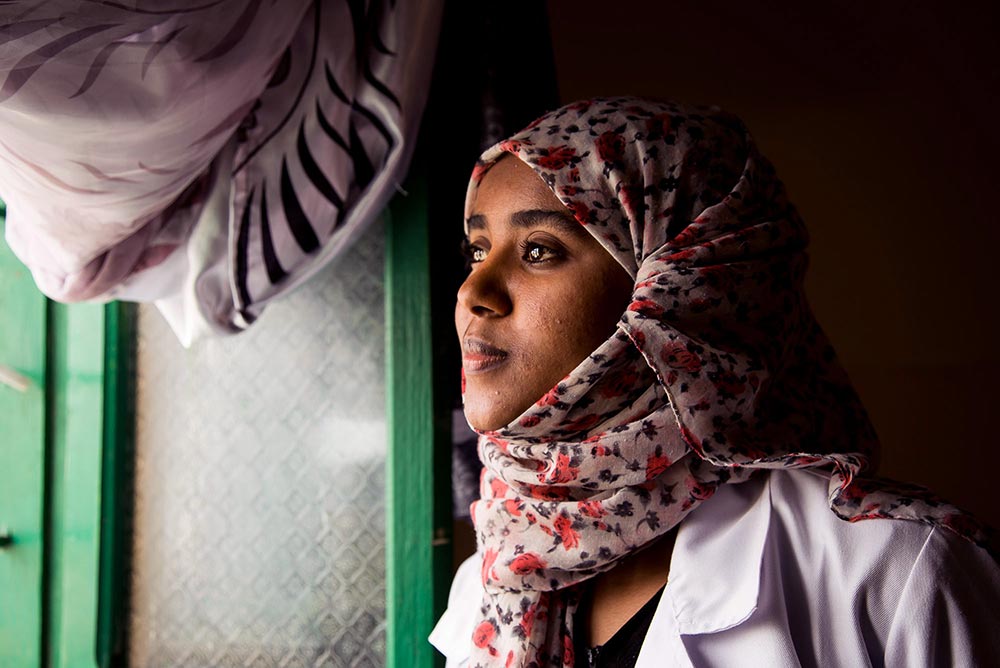

Bold new partnerships
Protecting and promoting SRHR involves keeping many plates spinning at once. But common to all these elements, European governments say, is the idea of partnerships – both old and new.
Governments in Europe have long supported SRHR programmes that rely on a number of different partners and channels, including the multilateral system and UN agencies, government-to-government cooperation, civil society organizations (CSOs), and global initiatives, such as the Global Fund to Fight AIDS, Tuberculosis and Malaria.
Today, rather than retreating into isolationism and protectionism in the face of threats, European governments passionately endorse an openness to partnerships as a defining feature of SRHR strategy – and development more broadly – up to and beyond 2030.
From major multilateral initiatives that bring about global breakthroughs to bold new coalitions drawn from research, civil society, government, academia, the private sector and digital innovation, European governments are committed to supporting partnerships.
These, they say, are the best way to reshape global development to better reflect and respond to the SRHR needs of our diverse global community and to buttress SRHR against the risks ahead.
Get pragmatic to plug gaps











NGOs have an essential role in lobby and advocacy, as well as service delivery. We therefore find it important to collaborate with and fund CSO SRHR partnerships.” say Mette Gonggrijp, Director of Social Development and Ambassador for Gender equality and women's rights, and Rineke van Dam, Senior Policy Officer SRHR at the Ministry of Foreign Affairs of the Netherlands.
This is also about pragmatism. With funding for official development assistance set to fall in the next decade, governments and planners will need to be creative, share expertise and work together to plug gaps and get things done.
European governments’ valuable experience of ‘multi-stakeholder partnerships’ will be crucial. This rather jaded development jargon covers all manner of collaborations, revealing the power that can be unleashed when different elements come together. Dialogues between governments, civil society, UN agencies and others have and will continue to be instrumental for accelerating global support for SRHR.
For example, a new global coalition on SRHR and bodily autonomy is one of six UN-backed action coalitions that bring together member states, women’s movements, civil society, the private sector and youth leaders to drive targeted solutions for adolescent girls and young women.
Partnerships with civil society organizations remain vital. For many donor governments, civil society organisations are their eyes and ears on the ground – a shortcut to understanding the local contexts, culture and needs and so making development more meaningful and effective.
CSOs are also important watchdogs, tracking progress on global commitments. And, European governments say, they have a vital role to play in the fight against false information spread by those intent on undermining SRHR efforts – helping break down terminology and ensure people have access to accurate information.
Bold new partnerships
Getting ministries within government to work together more effectively to address SRHR is another crucial area – for example, looking at how water, sanitation and hygiene (WASH) programmes can better support women and girls’ SRHR and menstrual needs.
Education and SRHR is another crossover: European governments are starting to use education programmes to promote access to SRHR through Comprehensive Sexuality Education (CSE) and vocational training – and to make sure men and boys are part of these conversations.
Collaborations with the private sector, too, are a crucial and growing part of the picture – both for their resources and knowledge, their role in financing development, and as partners in designing innovative approaches and technology to make SRH more accessible.
European governments flag up the need for more research to better understand how to make such partnerships as fruitful as possible. In this fast moving space, it will be important to leverage contributions of the private sector but also to protect against potential risks of their involvement, including of financial burdens placed on individuals as a result of high medical bills from private providers.
Countdown 2030 Europe has been exploring the private sector’s growing role in SRHR and development, and has a keen interest in ensuring that as donor governments increasingly look to work with the private sector in this space, they will maintain their commitments to leaving no one behind and ensuring access for marginalized groups through their programmes.
Partnerships with academics and digital innovators are an exciting area, too. These can break new ground in SRHR research and help design digitally smart services and systems for tracking the huge amounts of data involved in monitoring progress on the Sustainable Development Goals.
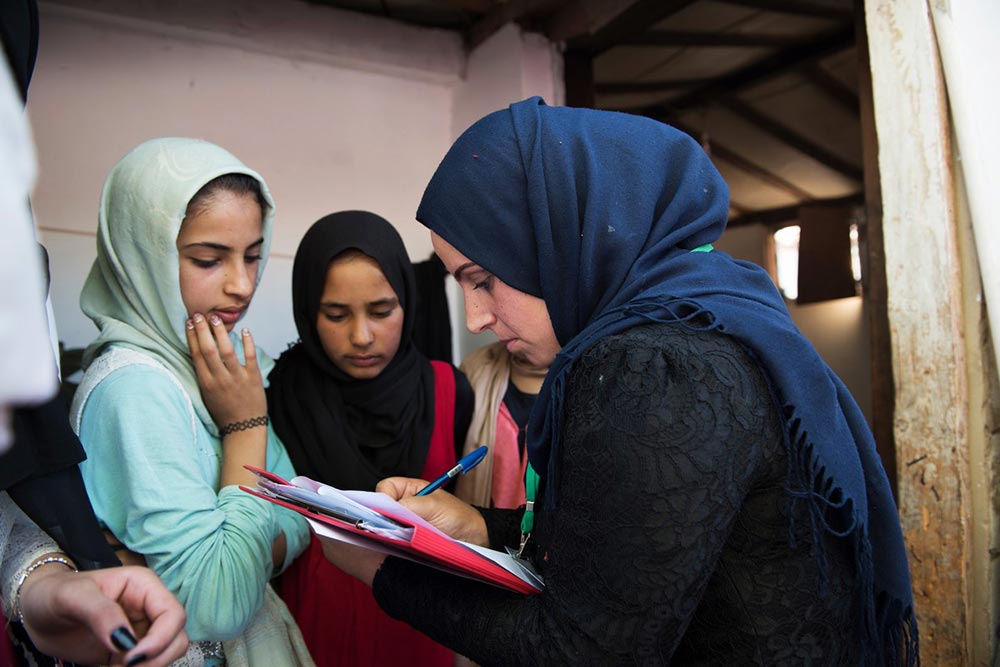












Facing threats together











In December, Dr Natalie Kanem, executive director of the UN Population Fund, spoke of “a rising regressive tide that threatens to tear away the rights that women and girls have over their bodies, their choices, and their lives”.
Long before COVID-19 struck, numerous local and global threats were holding back the global SRHR agenda.
Today, with multiple crises threatening to aggravate poverty, deepen inequalities and slash funding for SRHR, the need for the global community to face threats collectively, guided by a rights-based, inclusive vision for SRHR, grows more urgent by the day.
The COVID-19 pandemic has revealed the fragility of our health and social systems and how quickly hard-won gains can unravel when faced with catastrophic globalised events. Fragmentation and fractious relations in the UN Security Council are hampering coordination between the world’s most powerful governments – ferocious opponents of SRHR among them.
It is now more vital than ever that European governments rally to protect the ambitious, rights-based programmes for SRHR that they have long championed alongside progressive governments from other regions and multilateral organisations.
Governments need to make good on the commitments pledged in Nairobi and New York, and support SRHR action in other countries and communities, as part of the push towards 2030. More than ever, we need joint diplomatic action to ensure international norms promote the highest level of SRHR and to spur the funding needed to meet growing SRHR needs.
Crucially, too, European governments should embrace current crises as opportunities to innovate, to rethink how society works, and to take the SRHR agenda forward in a more comprehensive and accountable way with robust systems for tracking progress and funding.
The growing global calls to ‘build back better’ will only get anywhere if they prompt genuine efforts to rethink the global health architecture and how international cooperation can better support the billions of people whose lives are so affected by it.
Working together to do this will take boldness and an openness to new ideas and partnerships, building on the diverse, energetic movement energised in Nairobi eight months ago.
It won’t be easy. But if humanity is to thrive, governments must do all they can to realise this vision for sexual and reproductive health and rights. The wellbeing of billions of people depends on it, now and for generations to come.
The COVID-19 pandemic has revealed the fragility of our health and social systems and how quickly hard-won gains can unravel when faced with catastrophic globalised events.

